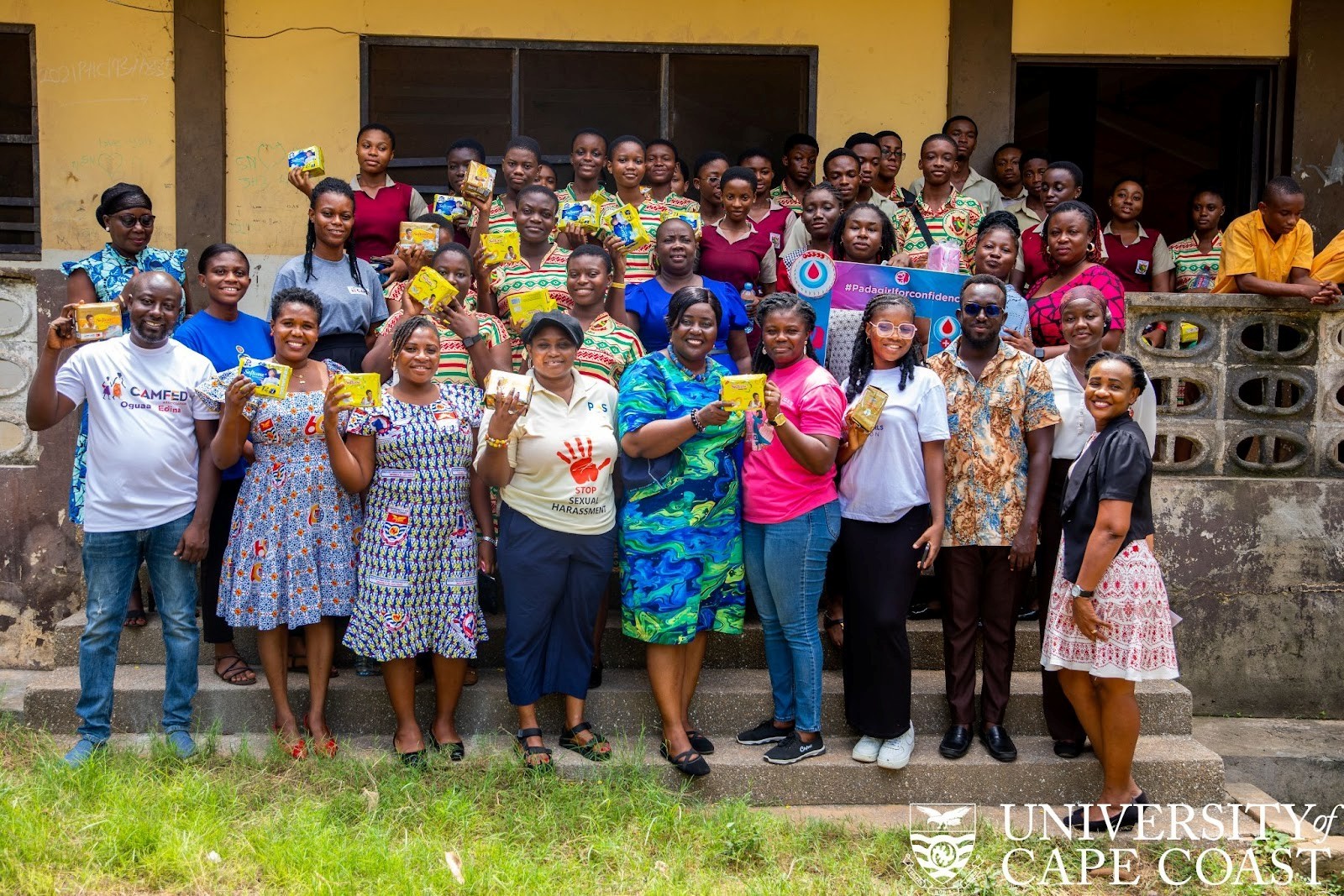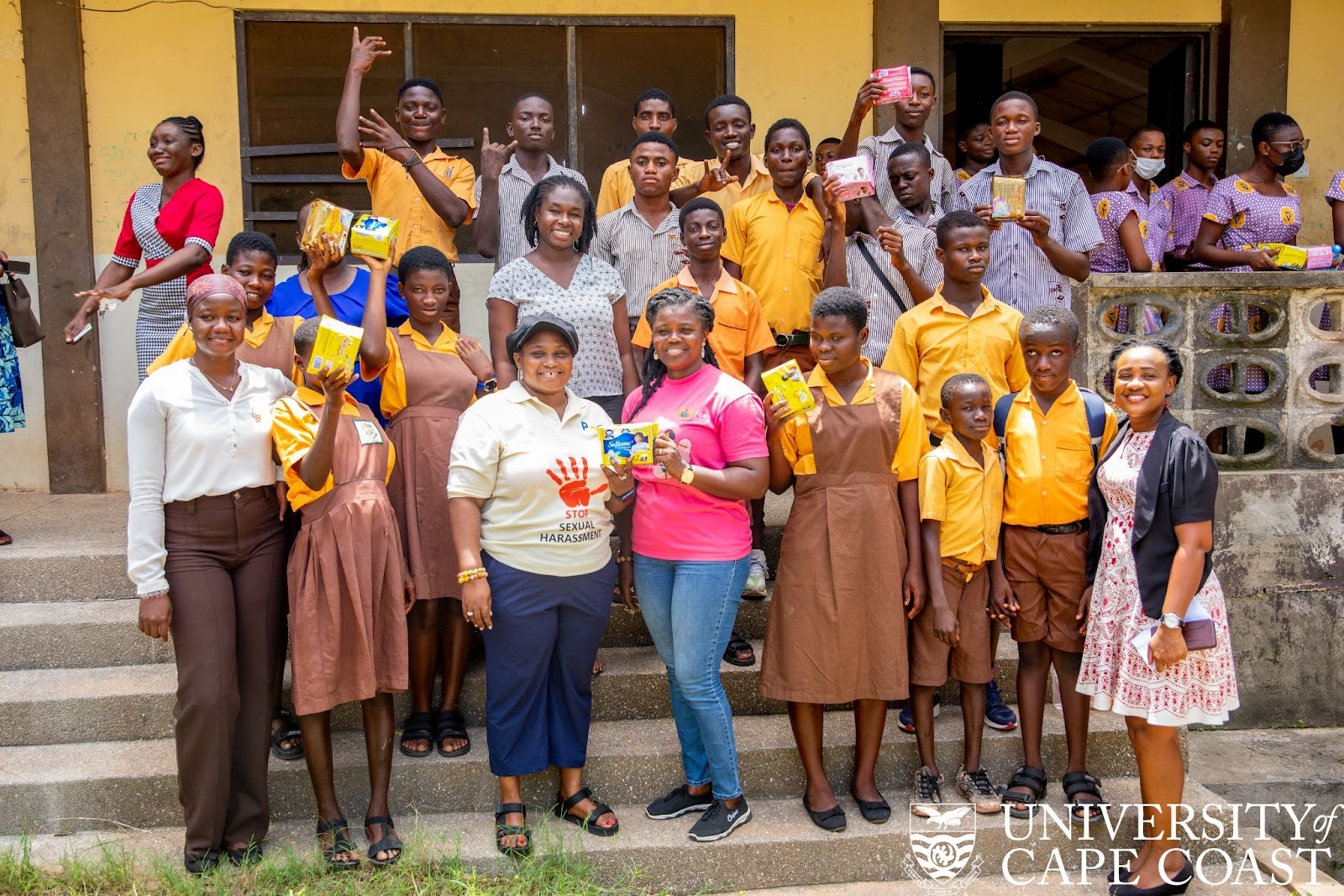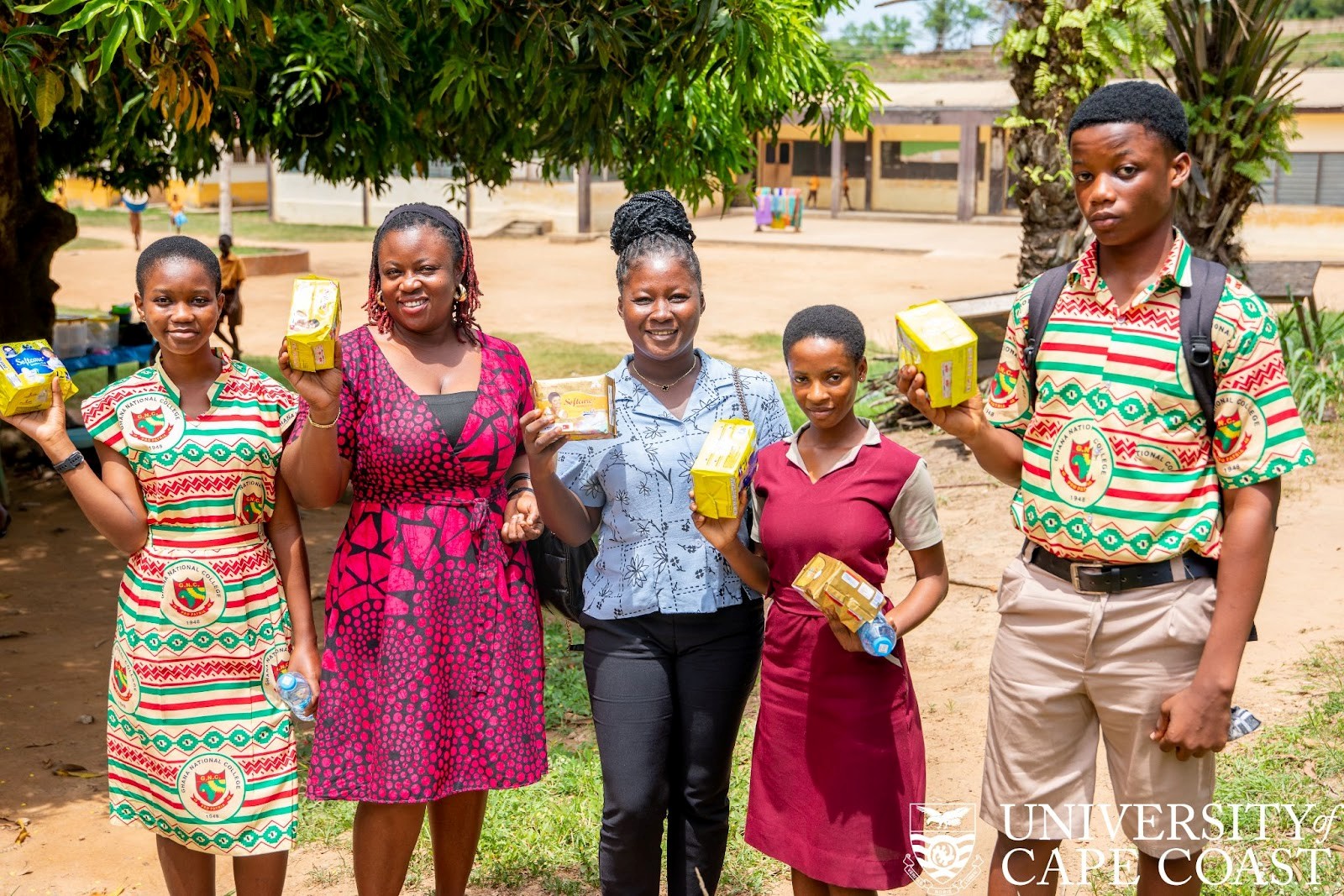As part of World Menstrual Hygiene Day, the Centre for Gender Research, Advocacy, and Documentation (CEGRAD) at the University of Cape Coast has organised a menstrual awareness campaign at the Cape Coast School for the Deaf and Blind.
The event, which focused on promoting menstrual hygiene education and awareness, was themed: “Together for a #PeriodFriendlyWorld”, urging collective action to ensure that menstruation does not limit access to education, health, or opportunity.
The programme brought together students from Senior High Schools, health workers, and members of the diplomatic corps. The students received sanitary towels from CEGRAD.
Addressing the students, the Director of CEGRAD, Prof. Eunice Fay Amissah, noted that it was important that adolescents, especially females, were taught menstruation and its implications.
She explained that menstruation was the monthly blood flow from the vagina which was part of the developmental stages in the lives of females.
"So if a female has her menstrual flow, it shows that she is a woman, and everything is normal with her," she added.
Some students of the School for the Blind and Deaf, Cape Coast, with the Director of CEGRAD, Prof Fay Ammissah (3rd from left) and some participants
Prof. Amissah said it had become necessary to include the boy child in menstrual education to curb the negative perceptions and prejudices they have about menstruation.
She urged the girls to manage their period with dignity and without shame.
The Central Regional Director of Education, Dr. Mrs Juliette Dufie Otami, lauded CEGRAD for organising the celebration to educate the attendees on menstruation to enable them to support girls in their time of menses.
She said the education of girls should not be affected by their menstrual period, adding, “It is not acceptable for the education of girls to be adversely affected because of a natural cycle that we all benefit from.”
She, therefore, urged individuals, organisations, and stakeholders to join in the campaign to assist in educating both girls and boys in the country.
She said the region had received over 85,000 sanitary pads from the National Sanitary Pad Distribution Programme, an initiative of the government, which was aimed at providing sanitary pads for over two million schoolgirls in public basic and secondary schools across the country for free.
The Programme Director of Planned Parenthood Association of Ghana (PPAG), Central and Western regions, Mrs. Agnes Osei, took the participants through the basics of menstruation, the menstrual cycle, how to use sanitary pads and how to dispose them off, as well as the need for balanced diets during menstruation, among others.
Some students and staff of Ghana National College
Touching on personal hygiene during menstruation, she emphasised the need for females to bath twice a day and change their sanitary pad anytime it was wet.
She acknowledged that education on proper disposal of used sanitary pads had been adhered to, and said it was not common to see used sanitary pads in the environment.
CEGRAD used the occasion to donate sanitary pads to the schools that participated.
Menstrual Hygiene Day is celebrated annually on May 28.
The day aims to raise awareness about menstrual health and hygiene and to promote the importance of good menstrual hygiene management for all.
Source: Documentation and Information Section-UCC



